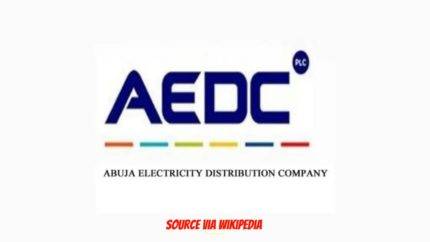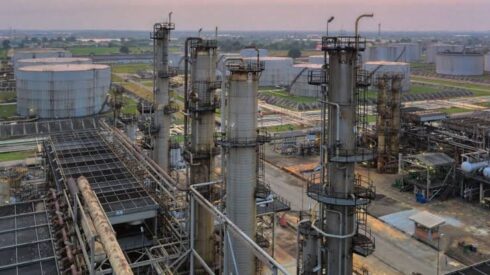The Abuja Electricity Distribution Company (AEDC) has announced its intention to disconnect barracks and 84 government agencies over their accumulated debt of more than N47.1 billion. This decision, outlined in a notice of disconnection issued on Monday, underscores the severity of the financial strain faced by the distribution company due to unpaid bills.
Among the prominent government entities listed in the disconnection notice are the Ministry of Finance, Ministry of Information, Ministry of Budget and National Planning, Ministry of Works and Housing, as well as various security agencies such as the Nigeria Police Force and the Economic and Financial Crimes Commission (EFCC). Additionally, institutions like the Presidential Villa, Central Bank of Nigeria (CBN), Federal Inland Revenue Service (FIRS), and Federal Airports Authority of Nigeria (FAAN) are included, highlighting the breadth of the outstanding debts owed.
In response to the mounting financial pressure, the AEDC has set a deadline of 10 days for the affected Ministries, Departments, and Agencies (MDAs) to settle their dues to avert the risk of power disconnection. Failure to comply by February 28, 2024, could result in a blackout for these entities, as emphasized in the notice issued by the distribution company.
Call for Debt Settlement Amidst Looming Blackout Threat :AEDC
The notice issued by the Abuja Electricity Distribution Company(AEDC) signals a critical juncture in its efforts to recover outstanding debts from government entities. Despite previous attempts to secure payment from these MDAs, the AEDC asserts that its efforts have not yielded the desired outcome, necessitating the public disclosure of overdue accounts.
The decision to disconnect power supply serves as a stern warning to defaulting agencies, emphasizing the seriousness of the situation and the urgent need for debt settlement. With the looming threat of a blackout looming over barracks and government offices, there is a heightened sense of urgency for timely resolution to avoid disruption in essential services and operations.
As the deadline approaches, stakeholders are closely monitoring the developments, with hopes that affected MDAs will heed the call to settle their outstanding bills promptly. The potential impact of a power outage on government operations underscores the importance of resolving financial obligations to ensure uninterrupted service delivery.
Implications for Government Operations and Public Services
The impending disconnection of barracks and government agencies from electricity supply raises concerns about the broader implications for public services and governance. Given the critical role of electricity in supporting essential functions such as security, communication, and administration, any disruption could have far-reaching consequences.
The financial strain faced by the Abuja Electricity Distribution Company(AEDC) reflects broader challenges within Nigeria’s power sector, including issues of revenue collection, infrastructure maintenance, and sustainability. Addressing the underlying causes of outstanding debts and improving payment compliance among government agencies is essential to fostering a more stable and efficient electricity supply ecosystem.
As stakeholders grapple with the complexities of debt management and service provision, there is a pressing need for collaborative efforts between the government and utility companies to address systemic issues and ensure the reliable delivery of electricity to all sectors of society. Failure to resolve these challenges could not only exacerbate financial woes for distribution companies but also undermine the quality of public services and impede socioeconomic development.
Government Officials Under Scrutiny for Mismanagement of Funds
Government ministries, departments, and agencies (MDAs) are under intense scrutiny following revelations of financial mismanagement and preferential treatment towards bribery over meeting essential obligations. Bayo Adelabu, in his capacity as a governmental figure, has called for concerted efforts among ministers to curb this ongoing crisis of fund embezzlement and negligence. It has come to light that instead of utilizing allocated budgets for their intended purposes, officials have resorted to bribery, particularly within the electricity sector, while essential bills remain unpaid, causing significant accumulation.
The issue of preferential treatment towards bribery highlights a systemic problem within governmental structures, where accountability and transparency are compromised for personal gain. Adelabu’s call to action underscores the urgency of addressing these corrupt practices to safeguard public funds and ensure efficient service delivery to citizens. Probing into the actions of those responsible for managing these funds is imperative to root out corruption and restore public trust in governmental institutions.
Urgent Need for Financial Responsibility to Ensure Essential Services
The staggering debt owed by government agencies to the Abuja Electricity Distribution Company (AEDC) totaling ₦47.2 billion raises serious concerns about the functionality and sustainability of vital services. As essential bills remain unpaid, the ability of AEDC to fulfill its responsibilities to customers is severely compromised, posing significant challenges to public welfare and economic stability. Governmental negligence in settling these outstanding debts not only undermines the credibility of public institutions but also jeopardizes the provision of reliable electricity services essential for societal functioning.
The government must prioritize fiscal responsibility by promptly settling outstanding bills to encourage AEDC to discharge its duties effectively. Failure to do so not only exacerbates financial strain on utility providers but also undermines efforts to foster economic growth and development. Addressing this pressing issue requires a collaborative effort between government officials and utility providers to establish sustainable solutions and ensure the uninterrupted delivery of essential services to citizens.
OUTSTANDING ELECTRICITY BILL BY GOVT INSTITUTIONS
TOP 15
1 Chief of Defence Staff – Barracks & Military Formations: ₦12bn
2 FCT Ministry: ₦7.6bn
3 Ministry of Finance: ₦5.4bn
4 Niger State Governor Abuja Liaison Office: ₦3.4bn
5 Min of State Petroleum: ₦2.1bn
6 Ministry of Education: ₦1.8bn
7 CBN Governor: ₦1.6bn
8 Nigeria Police Force: ₦1.4bn
9 Kogi State Governor – Abuja Liaison office: ₦1.4bn
10 Ministry of Health: ₦1.2bn
11 Clerk of NASS: ₦1.1bn
12 Presidential Villa: ₦924m
13 FAAN: ₦846m
14 Ministry of Justice/AGF: ₦816m
15 State Security Office: ₦649m
86 Govt institutions are indebted to AEDC to the tune of ₦47.2 billion
They just wrote CBN Governor
(AEDC)
Table of Contents
Discover more from OGM News NG
Subscribe to get the latest posts sent to your email.













